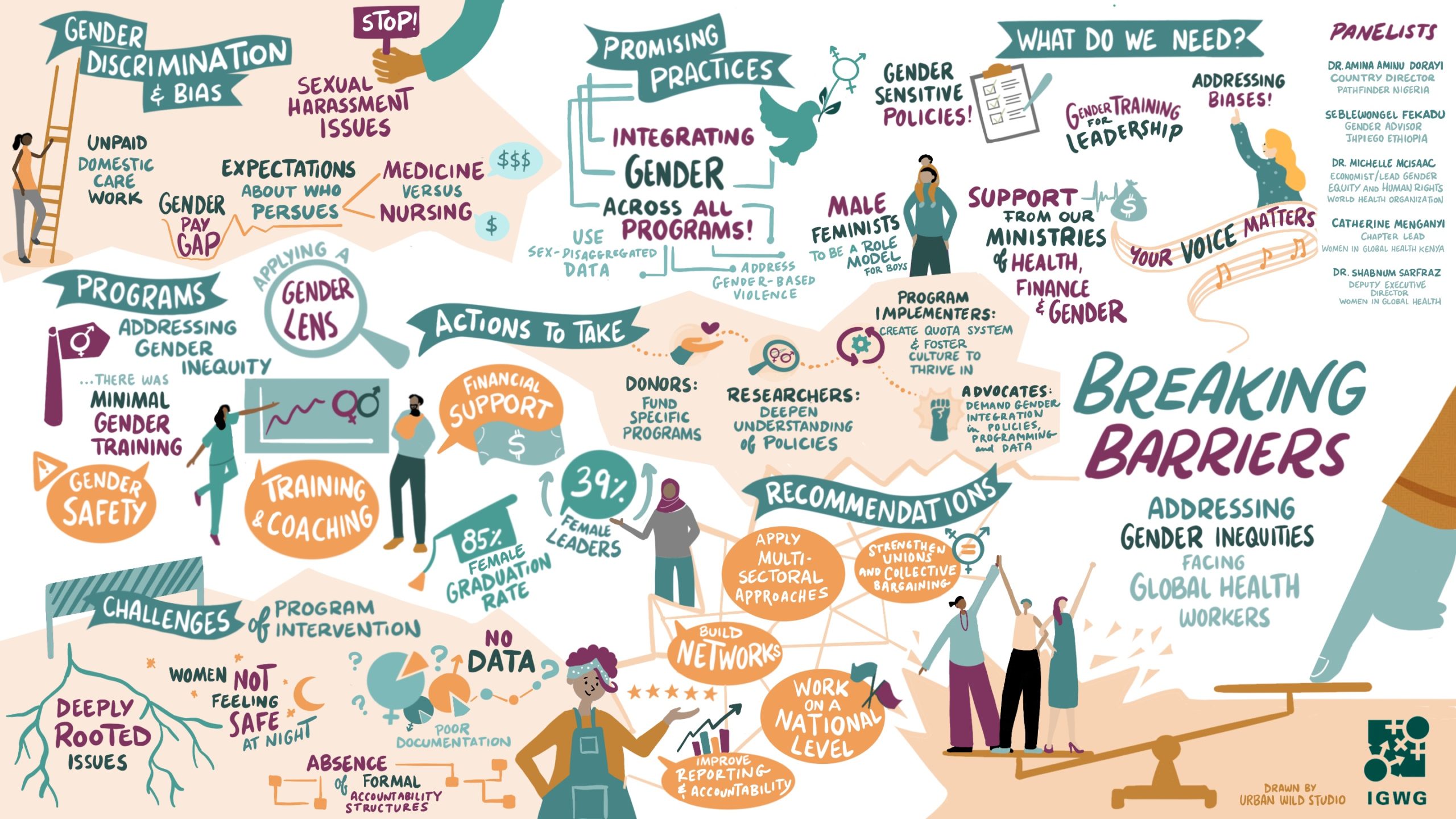Throughout 2023, PROPEL Health served as the secretariat for the Interagency Gender Working Group (IGWG)—a network of nongovernmental organizations, USAID, and USAID cooperating agencies dedicated to advancing gender equality within global health programs. The overall aim is to improve family planning, reproductive health, maternal and child health, and nutrition outcomes; advocate for HIV awareness and prevention; and foster gender-equitable, sustainable development. The working group, which is entering its twenty-seventh year, pursues its mission by elevating local voices, promoting evidence-based approaches, and fostering South-to-South knowledge sharing. The IGWG logged several accomplishments in 2023, including convening four events and publishing three blogs.
Elevating Local Voices
A blog published in September offers a series of recommendations from the IGWG’s diverse GBV task force on how to address technology-facilitated gender-based violence (GBV). Also called online violence, cyber violence, and digital violence, technology-facilitated GBV refers to gender-based violence that is committed using mobile phones, smartphones, the internet, social media, or other digital platforms or tools. This form of violence can have devastating consequences for women and girls’ safety, health, and rights. The blog urges integrating technology-facilitated GBV prevention and response into sexual and reproductive health programming, including building privacy and safety into digital sexual and reproductive health services, and advocating with donors to invest in and partner on research on the intersection between technology-facilitated GBV and sexual and reproductive health.
Another blog, authored by Thomas Sithole based in Ghana and Emah Udeme based in Nigeria, was published as part of IGWG’s “Members Take the Mic” blog series and draws on the authors’ experiences working with men and boys to promote more gender-equitable norms and behaviors within diverse settings and projects. The authors share examples of community backlash against gender transformative programing, as well as 10 actionable recommendations for program implementers to help mitigate the effects. Sithole and Udeme note, “By addressing backlash, program implementers can strengthen male engagement programs and better support and empower men and boys, women and girls, and their partners to take steps toward breaking free from harmful gender norms and advancing gender equality.”

Fostering South-South Knowledge Sharing
As part of their ambitious convening agenda, the IGWG brought together more than 40 participants representing 14 countries for its gender knowledge exchange event, “Examining Intersectional Approaches in Gender Transformative Programming” in June. The event resulted in a list of key recommendations for program implementers, including the need to identify the challenges faced by marginalized groups in program design; adopt human rights and health approaches to program implementation; and partner with marginalized groups to ensure their meaningful participation in program design and implementation.
Later, in August, the IGWG brought together more than 180 participants representing 43 countries for their “Breaking Barriers: Addressing Gender Inequities Facing Health Workers” plenary. The event highlighted research examining gender inequities faced by health workers (such as pay gaps, sexual harassment, and inadequate workplace policies) and showcased promising practices and lessons learned from innovative programs in Ethiopia and Nigeria. Key recommendations and resources for program implementers on how to address gender inequities were captured in a graphic and summary brief, which IGWG disseminated widely. The working group also produced a web feature showcasing members’ personal experiences facing gender inequities and barriers in the health workforce and addressing these inequities in their work.
Contributing to the Evidence Base
During 2023, PROPEL Health and Knowledge Success co-chaired IGWG’s GBV Task Force, combining the expertise and capacity of both projects to convene and develop meaningful, relevant, and engaging events and products. In October, the task force convened more than 40 participants from 17 countries to explore Knowledge SUCCESS’s FP Insight platform where practitioners can share GBV response and prevention knowledge and resources. During the event, “Harnessing Family Planning Insight as a Tool to Support Knowledge Exchange in GBV Prevention,” participants identified GBV-related publications and innovations to add to the FP Insight collection to help expand access to critical GBV resources.
In December, the task force hosted another event, “Examining Comprehensive Sexuality Education in Gender-Based Violence Prevention and Response Efforts” to explore the role of GBV in comprehensive sexuality education curricula and the effectiveness of and best practices for integrated interventions. Recommendations from the event, which was attended by more than 120 participants from 39 countries, were captured in a blog published on IGWG’s website.
As 2023 concludes and management of the IGWG transitions from PROPEL Health to another project, we celebrate these accomplishments and the IGWG’s ongoing efforts to advance gender equality and improve health and gender outcomes.
